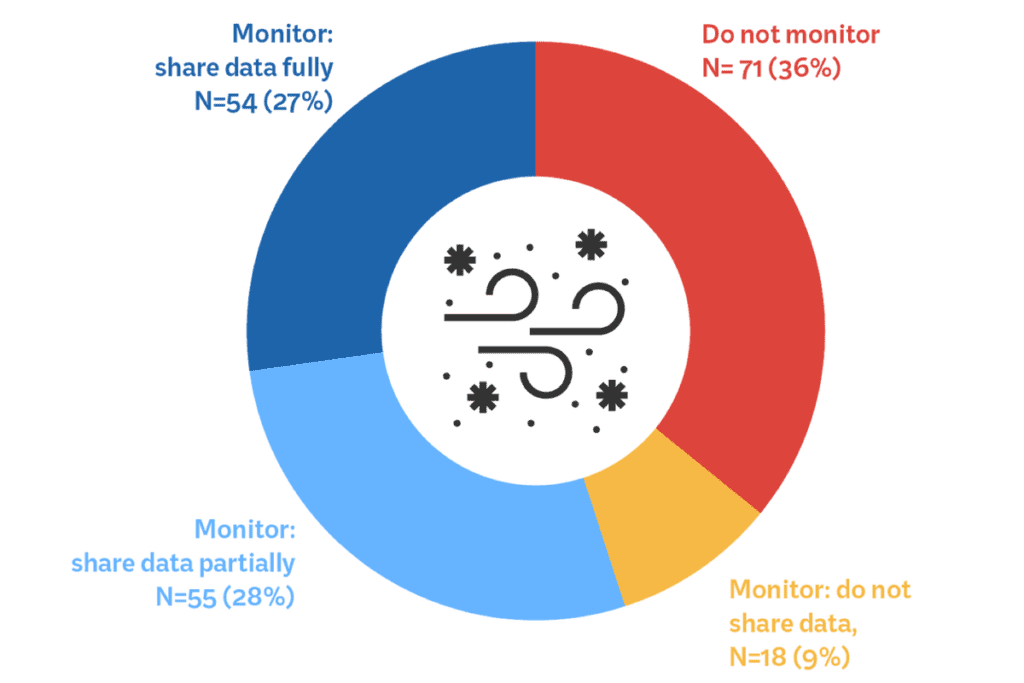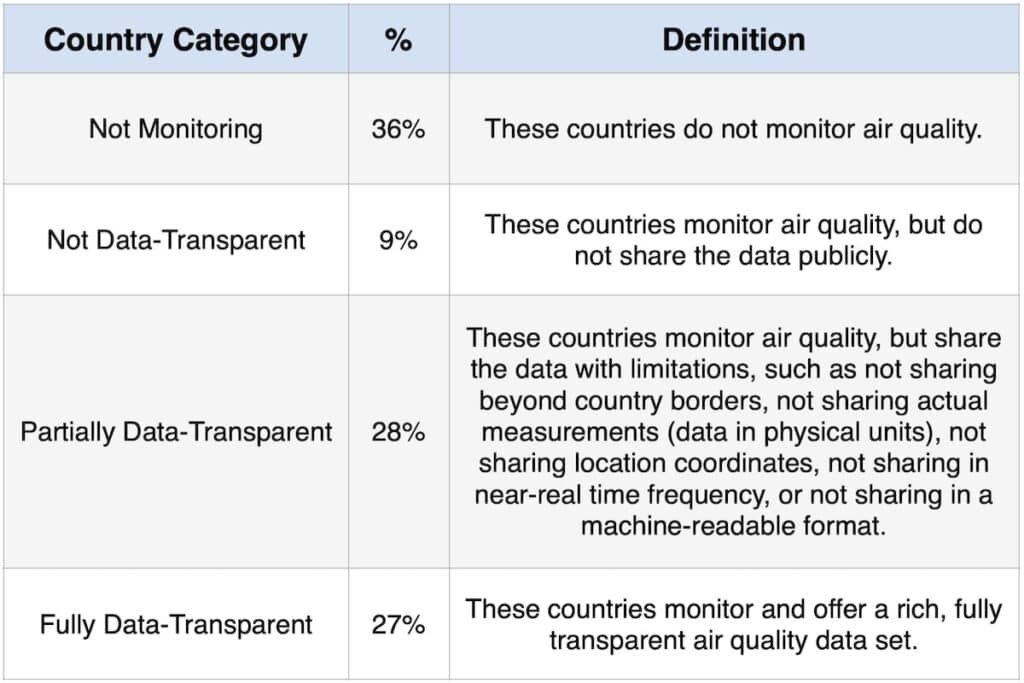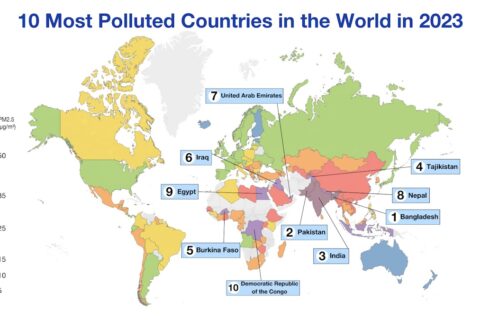
Despite the fact that pollution poses significant risks to human health, research reveals barely 1 in 4 countries (27%) provide fully transparent air quality data, and more than 1 in 3 (36%) fail to monitor it at all.
Findings in the new report from OpenAQ offer insights into the status and impacts of air quality monitoring and data transparency globally, across a total of 198 countries.
As the largest free open-source air quality data platform, OpenAQ researched which governments have monitoring programmes and to what extent the data they generate is open to the public.
Pollution behind 8 million early deaths
Air pollution, largely driven by fossil fuel emissions, takes a tremendous toll on human health.
In fact, more than eight million early deaths are attributable to air pollution each year, making it the largest environmental risk to health globally.
The impact of air quality on global life expectancy is comparable to that of smoking — more than 4 times that of high alcohol use, 5 times that of transport injuries like car crashes, and 6 times that of HIV/AIDS.
That said, joint action by public, private and civil society stakeholders can still successfully address this global public health risk and create a world with clean air for all.
No monitoring in one third of cases

In terms of specific next steps, added attention is urgently needed around tackling air pollution sources, boosting awareness, and monitoring, plus providing open access to air quality data.
Fully transparent air quality monitoring data is a key, often overlooked, foundational component of clean air action. Data on what pollutants are in the air at what concentrations inform scientific studies.
This data can help pinpoint sources and locations of pollution, and be used to tell scientifically accurate and compelling stories. The data will ensure more accurate forecasts are made to inform communities of dangerous conditions, and provide the evidence needed for policy development and enforcement.
Unfortunately, barely one quarter of countries supply this essential air quality data in a fully transparent way, as reported in OpenAQ’s newest biennial assessment Open Air Quality Data: The Global Landscape 2024.
Alarmingly, more than one third do not even have an air quality monitoring programme. This means nearly 1 billion people live where a government does not monitor for one of the greatest risks to human health.
Improvements in 30 countries since 2022
Overall, the assessment in the report groups countries into four principal categories: Not Monitoring; Non Data-Transparent; Partially Data-Transparent; and Fully Data-Transparent.
Transparency is key, explains co-author Dr Colleen Rosales, Strategic Partnership Director at OpenAQ:
“To deliver clean air for all, governments need to not only track air quality, but also offer an accessible, quality data set. Billions of people do not know what they are breathing and could benefit from greater data transparency.”
The report also highlights 30 countries that have stepped up since 2022 and displayed leadership by either beginning to monitor or improving air quality data transparency.
Administrations to be applauded for becoming newly fully transparent in this cycle include: Cabo Verde, Hong Kong, Italy, Japan, Kenya, Kosovo, Kyrgyzstan, Netherlands, Peru, South Africa, and Uganda.
There is still more to do, though, concludes co-author and OpenAQ Executive Director, Chris Hagerbaumer:
“Open data spurs collaboration, inviting civil society, academic and private sector actors to lend their expertise to solving the air pollution crisis. OpenAQ is here to support governments in applying best practices for opening up their air quality data so that they do not have to solve the problem of air pollution in isolation.”
The report recommends far greater philanthropic support and international development aid in support of air pollution monitoring and data sharing, with conditions for data transparency in funding agreements.
Open-source access to clean air data
OpenAQ is a US-based nonprofit organisation on a mission to provide universal access to data that helps give a global community of changemakers what they need to solve air inequality.
OpenAQ aggregates and harmonises disparate air quality data from sources around the world, hosting the data on a first-of-its-kind free and open-source platform. Researchers, community advocates, journalists, and other changemakers use this data to build the case for clean air and climate change action.
Further Reading:
- More on the largest free open-source air quality data platform OpenAQ;
- Read and download the full OpenAQ report into Open Air Quality Data: The Global Landscape 2024;
- Also on SustMeme, Only 7 countries meet WHO standard for air quality;
- Also on SustMeme, COP28: Health check for the climate agenda;
- Also on SustMeme, Landlord pioneers use of antiviral air-purifying paint;
- Also on SustMeme, Pay-per-mile tyre to cut pollution from EV taxis;
- Also on SustMeme, Call to use urban car space to walk and cycle post-COVID;
- Also on SustMeme, Future of Construction: Change is in the Air (in The Times newspaper, 2017).
Check out the full archive of stories on the SustMeme Climate & Energy Channel, now available to Sponsor.





